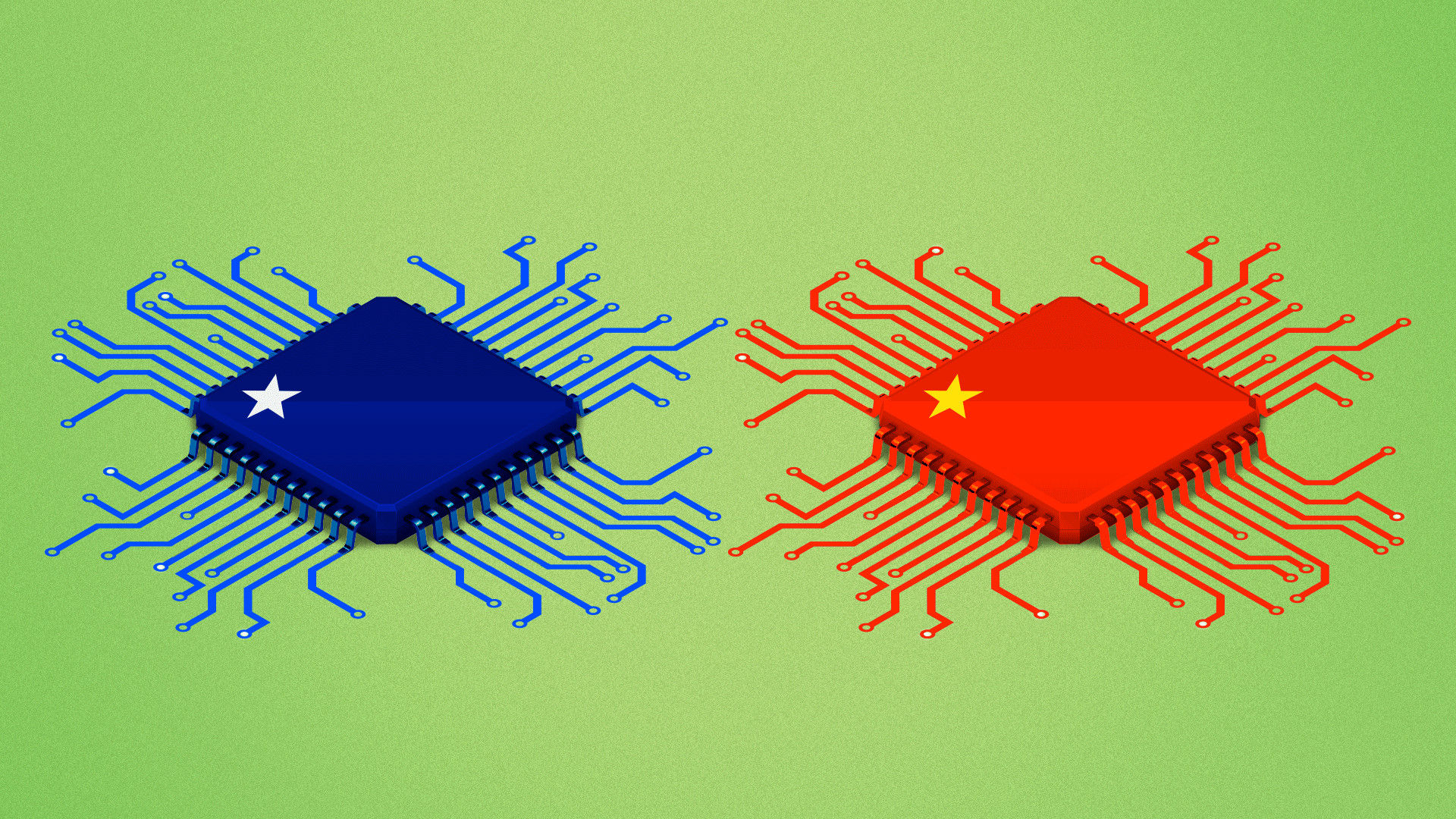Ryan Heath

Why it matters: If the U.S. is too slow to integrate and adopt AI across its economy, they say, China may leverage it more effectively.
The big picture: Across China, AI is being deployed quicker than in the U.S. in many sectors, driven by higher levels of trust and nudges from the government.China's AI discussions are notable for their levels of enthusiasm and trust, as Axios previously reported.
What they’re saying: Anja Manuel, executive director of the Aspen Security Forum, told Axios she is struck by how energized Chinese AI entrepreneurs are."The government has created clear lanes for them," she said, whereas in Washington "there seems to be a sense that we can export control our way out of this problem. I don't think that's going to work: we have to move faster."
Microsoft president Brad Smith last week told the Aspen Security Forum last week: "Everyone focuses on a competition or race as to which country will develop stronger AI. What we miss is that there's a race of people to use and deploy AI, to move the frontier of competitiveness as a nation.""No one in the United States should ever underestimate the speed at which the Chinese economy, including in the private sector, or even the state owned enterprises, deploy new technology."
Between the lines: The U.S. has focused on slowing China's AI development by restricting exports of key chips and other equipment.But chip manufacturers warn that may also choke the market for chips made with CHIPS and Science Act subsidies.
Cold War tactics may not suit the China confrontation.U.S. strategy focused on containment to limit Soviet aggression and hasten that government's collapse — but with China's rise, Washington's goal is to manage competition, not push regime change.
What's happening: Six years into a national plan to become the global AI leader by 2030, China's AI adoption is real but often less visible to outsiders — as with its AI-driven superapps.While America raced ahead in generative AI chatbots, Baidu's Ernie bot and Alibaba's Tongyi Qianwen only became available to mainland China users in recent weeks — partly because Beijing requires AI providers to submit their algorithms for government vetting.
Shanghai is angling to become China's AI talent hub, mirroring the role San Francisco is playing in America's AI boom.
By the numbers: China remains the world's largest market for chips — absorbing 25-30% of global production, per Pat Gelsinger, Intel CEO, who warned of U.S. chipmaking overcapacity if Chinese markets are further cut off.Facing limited access to global chip markets, China has been forced to build up its own capacity, with local chipmakers raising $8 billion from stock offerings this year.
Four of the 10 companies producing AI research globally are Chinese, per Elsevier.
Between 2018 and 2022 U.S. federal government spending on AI and machine learning rose by just 8.6% — well behind technologies such as biotech and renewable energy — with the Navy, Army and Defense Department reducing their spending, per a critical technologies scorecard released this month by commercial data company Govini.
Yes, but: Widespread adoption of mediocre AI or AI tools that undermine fundamental liberties is not in the U.S.' strategic interest, and senior officials cast doubt on fears that the U.S. could fall behind.Secretary of State Antony Blinken was bullish on AI potential at the Aspen conference, calling it a "foundational technology for virtually every kind of progress."
National security adviser Jake Sullivan rejected criticisms of U.S. chip export controls, saying the "vast majority" of chip sales to China are still allowed.
No comments:
Post a Comment